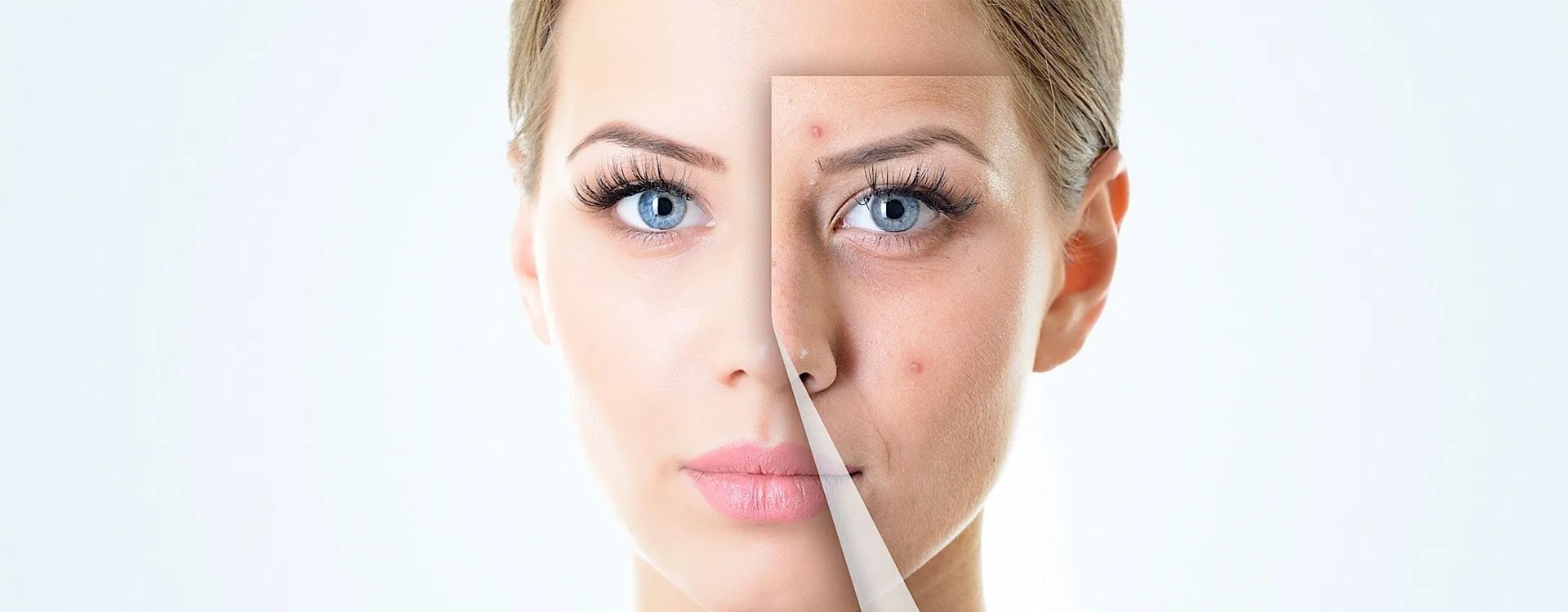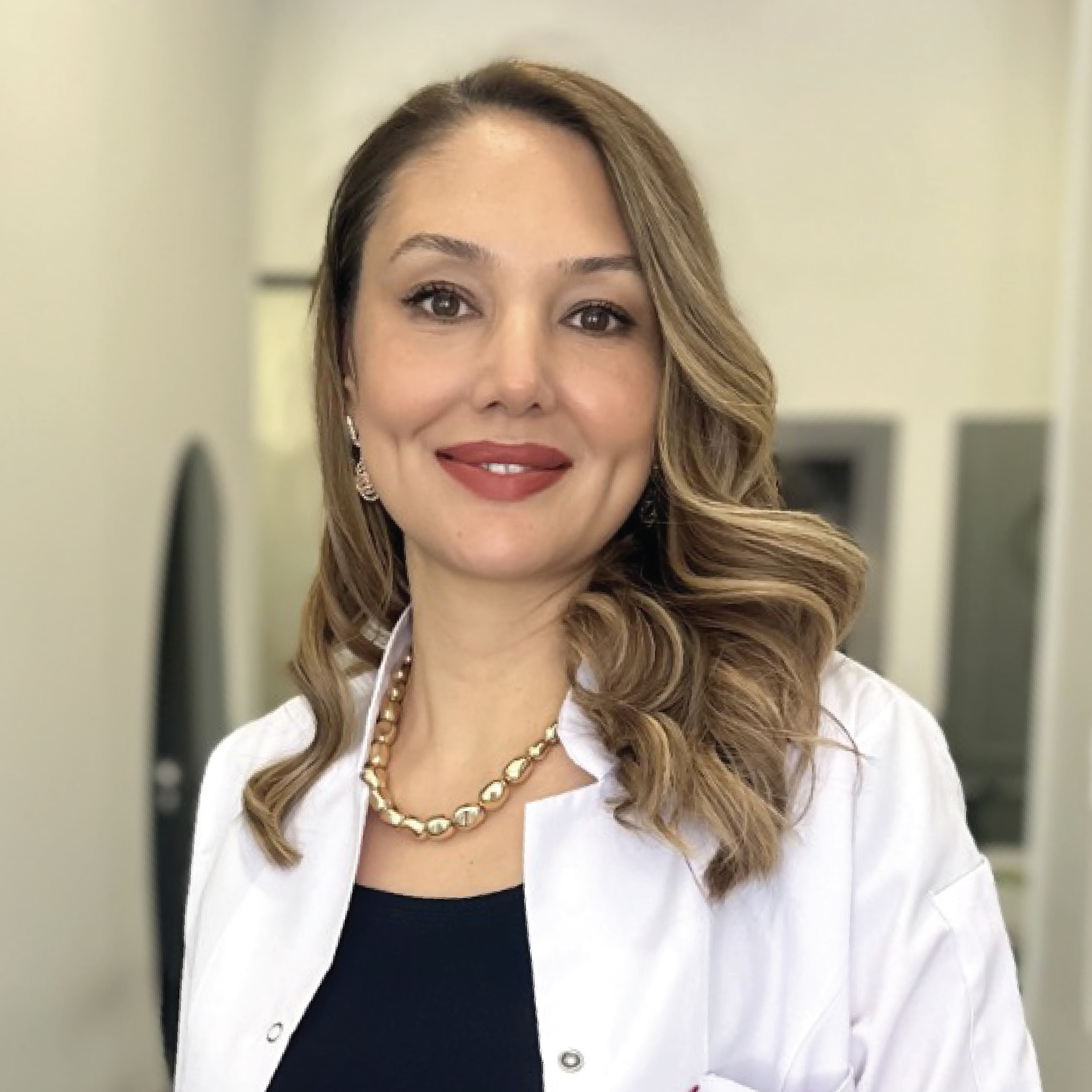Skin blemishes and scars are common cosmetic concerns for both men and women. Acne scars, sunspots, pigmentation due to aging, and post-injury marks can cause an uneven skin tone, leading to a dull and aged appearance. Various treatment methods have been developed to address these issues. The most effective treatment should be chosen based on the cause of the blemish or scar, along with a skincare routine suited to the skin type.
Causes of Skin Blemishes and Scars
The most common causes of skin blemishes and scars include:
Sun Damage (UV Rays)
Excessive sun exposure can cause hyperpigmentation, leading to brown spots. Unprotected exposure to the sun increases melanin production, resulting in uneven skin tone.
Acne and Pimple Scars
Acne scars occur when collagen production becomes irregular during the healing process of inflamed pimples. Popping pimples or using incorrect treatments can worsen scarring.
Aging and Hormonal Changes
As the skin ages, cell regeneration slows, and melanin distribution becomes uneven, leading to age spots. Hormonal changes, especially during pregnancy, can cause melasma (dark patches on the skin).
Injuries and Surgical Scars
Burns, cuts, or surgical wounds may result in noticeable scars due to irregular collagen production during the healing process.
Eczema and Infections
Skin conditions such as eczema and fungal infections can cause inflammation and pigmentation changes, leading to persistent blemishes.
Scar (Blemish) Treatment Methods
The choice of treatment depends on the type, depth, and skin type of the blemish. The most effective modern treatments include laser therapy, chemical peels, microneedling, and dermocosmetic products.
Laser Treatment
Laser technology is one of the most effective methods for removing skin blemishes and evening out skin tone. Treatments such as fractional laser, Q-Switch laser, and IPL (Intense Pulsed Light) target melanin cells and stimulate skin regeneration.
Chemical Peels
Chemical peels containing TCA, glycolic acid, and lactic acid remove dead skin cells, promoting the growth of new, healthy skin cells. This process helps to even out skin tone and gradually fade blemishes.
Microneedling (Dermapen, Dermaroller)
Microneedling involves controlled micro-injuries to the skin, boosting collagen production and reducing the appearance of blemishes. It also accelerates skin renewal for a healthier appearance.
PRP (Platelet-Rich Plasma) Therapy
PRP treatment involves injecting plasma derived from the patient’s own blood into the skin to promote cell regeneration. It is particularly effective for acne scars and wound marks.
Dermocosmetic Products
Regular use of certain dermocosmetic ingredients can help fade blemishes:
- Vitamin C: Brightens and evens out skin tone.
- Retinol (Vitamin A): Speeds up cell renewal and reduces blemishes.
- Niacinamide (Vitamin B3): Strengthens the skin barrier and reduces hyperpigmentation.
- Azelaic Acid: Helps fade acne and rosacea-related discoloration.
Mesotherapy
A specialized mix of vitamins, amino acids, and antioxidants is injected into the skin to brighten blemishes and even out skin tone.
Preventing Skin Blemishes and Scars
To prevent blemishes and scars, follow these essential steps:
- Use Sunscreen: SPF 30-50 sunscreens prevent sun-induced blemishes.
- Maintain a Skincare Routine: Use cleansers, moisturizers, and blemish-fighting products suitable for your skin type.
- Stay Hydrated: Drinking plenty of water keeps the skin healthy.
- Eat a Healthy Diet: Antioxidant-rich foods promote skin cell regeneration.
- Avoid Skin Irritation: Harsh scrubs and abrasive treatments can worsen blemishes.
Skin blemishes and scars are common concerns that can arise from various causes. The right treatment should be selected based on the type and severity of the blemish. Laser treatments, chemical peels, microneedling, and dermocosmetic products are effective methods for reducing skin imperfections. With proper daily skincare and preventive measures, the formation of blemishes can be minimized. If you have persistent scars or discoloration, consult a dermatologist to determine the most suitable treatment for your skin.









